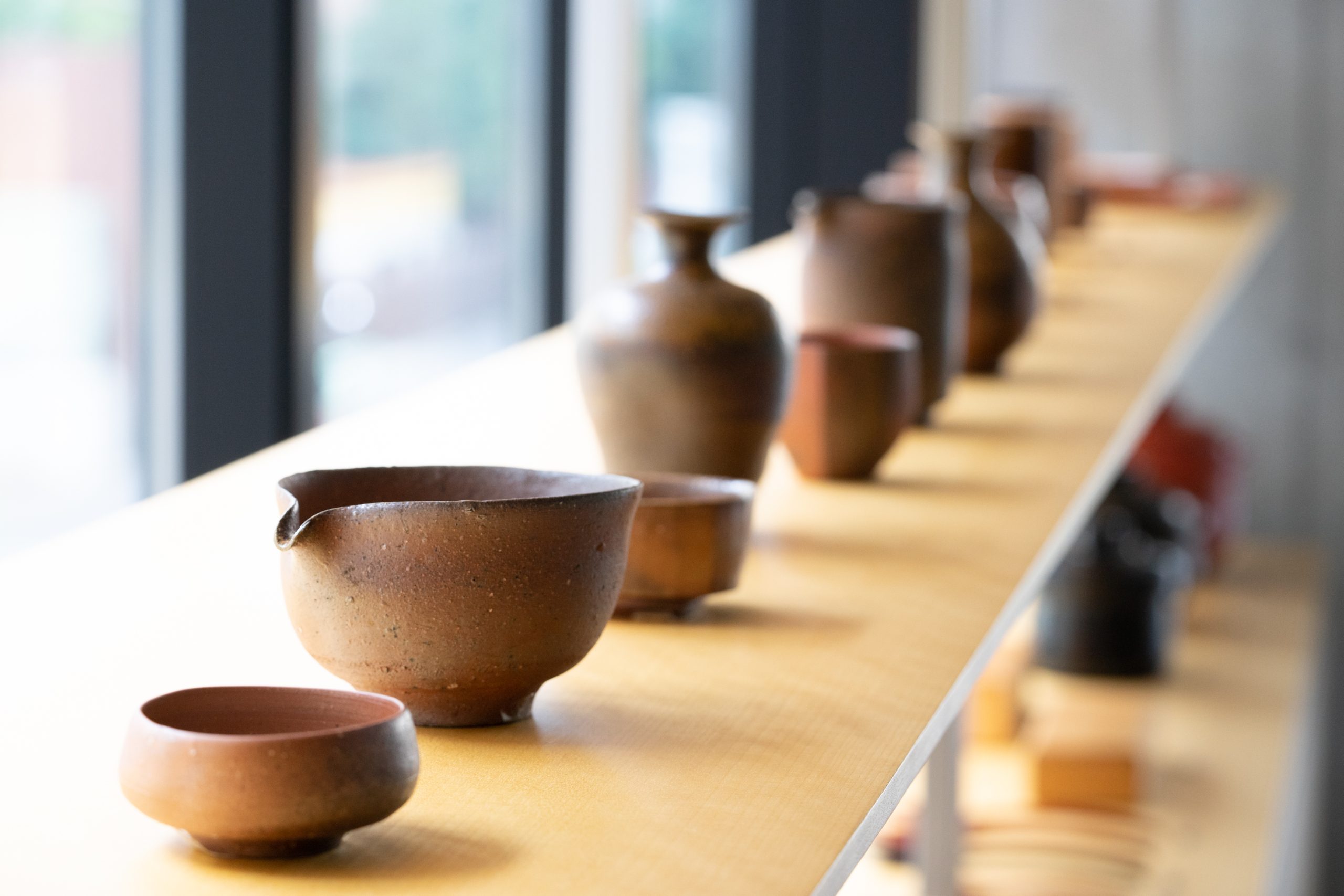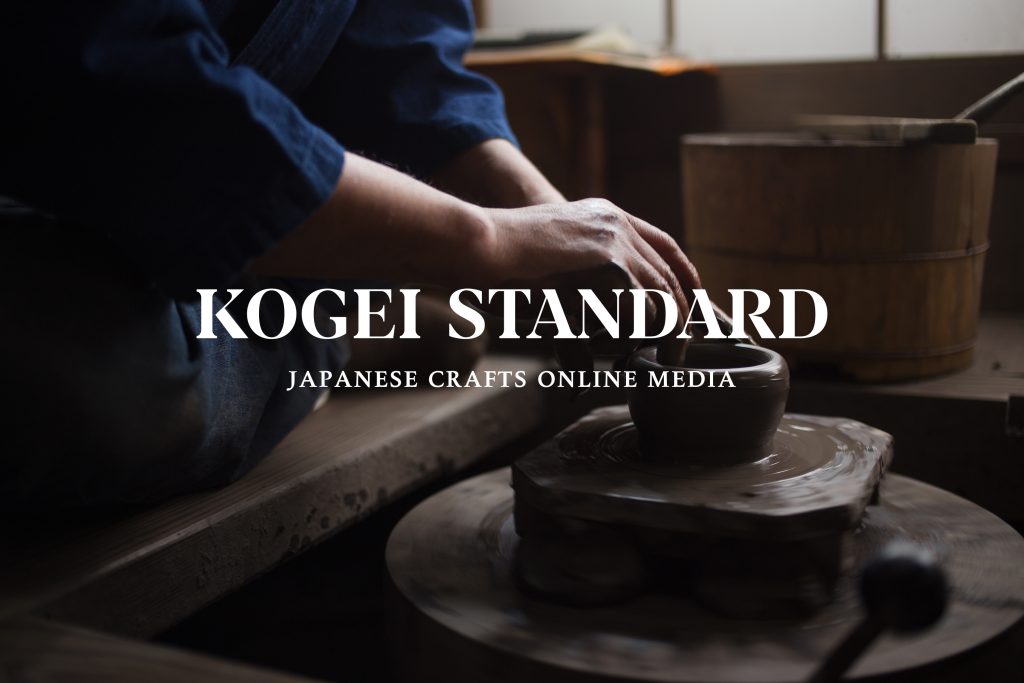In Japan, the word “utsuwa,” written in kanji as 器, means “tableware,” “container,” or “vase.” However it is also sometimes written in hiragana script asうつわ. I don’t think there is any particular rule about this style of writing, but sometimes writing in hiragana gives a softer impression to the characters, and people who like pottery or yakishime (pottery fired at a high temperature without glaze) tableware often express it that way. For some strange reason, though, to me utsuwa is something that you meet or encounter, and with a special sense of connection. There is a special word for this kind of connection in Japanese, 縁 “en”, which is very difficult to translate precisely but describes just such a feeling of mysterious, fated, or even spiritual connection. Some of the utsuwa I have encountered in this way I found while traveling, while others I came across among the many works on display at a pottery market. But all of them made me feel like I was meant to meet them, almost as if we were linked by fate. Utsuwa have this kind of lovely charm.
HULS GALLERY showcases not only utsuwa but also a variety of other kinds of crafts such as textiles and woodwork. But we are in a way just like an old-fashioned utsuwa store that has been brought to life through such a series of special connections. Visitors to the gallery often ask us what criteria we use to select the artworks we show, but in our case, we often tell them that we don’t select each piece individually, but rather that we have naturally come up with such an assortment through our ongoing encounters with artisans in each region. Also, as our experience of handling such pieces grows, we are able to get a glimpse of the creator’s personality and individuality just by looking at his or her work. I think that feeling may indeed be our real ‘rule of thumb.’
In the end, it can be said that for us, such a “fateful” connection or encounter with utsuwa is like such an encounter with a person. In the business of handicrafts, it is essential to have a meaningful dialogue with the artisans, and one of the most important times for us is when we have a meal with him or her and learn about their view of life and aesthetics while looking at the same scenery. Sometimes we visit the production workshops ourselves, and sometimes they visit us in Tokyo or Singapore, but each time we spend time together, we experience again that deep “en” connection and deepen our attachment to the work. We don’t just face the work, we also face the creator.
As a gallery operator, we feel that we have a mission to convey and share the history and charm of Japanese crafts to the world, rather than just to be a seller of individual products. If we just display and sell our products without sharing what attracts us to them or the stories behind them with visitors, I feel there is no meaning or purpose to our existence, no reason for us to be here. Selling crafts is not just a matter of moving things from right to left, it is also a matter of conveying feelings, thoughts, desires, and wishes from one person to another. The artisan’s devotion and spirit of wanting to make something better, even if the improvement is only visible to them, is sometimes warm and nurturing and sometimes intense and demanding, but I truly believe in the value of such intangible things. A single special connection has the power to change the way we experience our daily life, and could even change our lives. I try to keep this feeling in mind every time I sell even a single utsuwa, because each one presents a chance to create just such a special “en” connection.


